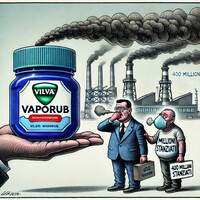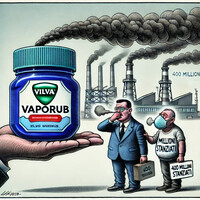Paediatricians from Taranto and its province say: it is necessary to intervene in order "to avoid the dangerous exposure of children to environmental pollutants" and to “guarantee a safe environment to pregnant women”
- 14 luglio 2014
Paediatricians of Taranto - acknowledging the update of the National Institute of Health S.E.N.T.I.E.R.I. 2014 report, which has demonstrated and confirmed a worrying excess of mortality and hospitalisations in the first year of children’s life and in general in the range of 0-14 years old, a higher incidence of cancer, perinatal diseases and acute respiratory illnesses, affecting an area of high environmental risk recognised as a reclamation site of national interest - agree with the authors of the above report about the need to intervene "to avoid the dangerous exposure of children to environmental pollutants" and "guarantee a safe environment to pregnant women”.
Acknowledging also that, according to the Health Damage Assessment document developed by A.R.P.A. Puglia the release of carcinogenic and toxic substances with carcinogenic risk from inhalation, unacceptable for a large number of citizens and including pregnant women and children, will still persist in 2016, paediatricians agree with the conclusions of A.R.P.A. Puglia on the inadequacy of the measures so far taken to protect the health of the entire population and of children in particular.
In light of these facts we call for the immediate suspension of the emission of harmful substances on the population because, given the current situation, the only thing needed by our territory is an immediate and profound work of environmental remediation, avoiding any further action that can be detrimental to the environment.
We consider this very a serious situation in which our children are doomed to a life expectancy less than that of others, and that no political, social or economic motivation can justify such circumstances.
It should be noted, moreover, that from the suggestions of the S.E.N.T.I.E.R.I. 2014 report, the need to deploy the resources for effective prevention first and then for the effective management of paediatric and neonatal diseases in order to cut down this unacceptable infant mortality emerges strongly.
In view of the many needs of our territory, unfortunately, we witness instead a depletion of human resources, especially in areas such as the Neonatal Intensive Care Unit and the Paediatric Hospital that would urgently need to be enriched in the same plant organic sectors which, with the paediatric territorial basis, are the only bulwark against this unacceptable trend of mortality.
Paediatricians of Taranto declare their availability to cooperate with any initiative of any epidemiological research and health plan aiming to protect the health of children.
signed:
Paediatricians of Taranto and province.
This document is agreed and signed by the Presidency and the Commission for Environment and Health of the Order of Doctors and Dentists of Taranto
Articoli correlati
 L'ISS ha sollevato puntuali obiezioni sulla metodologia adottata per la VIS
L'ISS ha sollevato puntuali obiezioni sulla metodologia adottata per la VISE’ stato sottostimato l’impatto sanitario dell'ILVA
Acciaierie d'Italia aveva commissionato uno studio per valutare l'impatto sanitario in uno scenario di 6 e di 8 milioni di tonnellate di acciaio annue sostenendo che grazie all'adozione delle migliori tecnologie le emissioni "post operam" sarebbero rientrate sotto la soglia di rischio.28 febbraio 2025 - Alessandro Marescotti Ha raccontato l'Ilva dal punto di vista delle vittime
Ha raccontato l'Ilva dal punto di vista delle vittimeDomenico Iannacone a Taranto: la vita che si fa racconto
Le storie non esistono se non vengono raccontate. Questo è il cuore del suo lavoro: portare alla luce le esistenze sommerse, le lotte quotidiane, i dolori nascosti ma condivisi. Ha la capacità di entrare in punta di piedi nelle vite degli altri e di restituirle con rispetto e profondità.27 febbraio 2025 - Alessandro Marescotti L'unguento che lenisce le affezioni delle vie respiratorie con un tocco di polveri sottili e benzene
L'unguento che lenisce le affezioni delle vie respiratorie con un tocco di polveri sottili e benzeneIl balsamo d’acciaio che tutela l’ambiente
I 400 milioni che erano destinati alla tutela ambientale e alla bonifica delle aree contaminate vengono dirottati per sostenere la produzione dell’ILVA. Il DDL 1359 evidenzia che "il rischio chiusura dello stabilimento sia quello più rilevante e significativo anche dal punto di vista ambientale".13 febbraio 2025 - Alessandro Marescotti Trasferiti fondi dalle bonifiche ambientali alla produzione di acciaio ILVA
Trasferiti fondi dalle bonifiche ambientali alla produzione di acciaio ILVAGrazie Meloni!
Da Vicks VapoRub a ILVA VapoRub, il nuovo unguento per uso inalatorio è pronto per tutti i bambini di Taranto. Il governo stanzia 400 milioni per questo trattamento balsamico nelle affezioni delle vie respiratorie. La motivazione è che chiudere l'ILVA provocherebbe un "rilevante rischio ambientale".12 febbraio 2025 - Alessandro Marescotti
Sociale.network